Statistics on rubbish collection in Christchurch.
The Council’s contractor collects rubbish from the red-lidded wheelie bins placed at the kerbside every second week.
The standard-sized rubbish wheelie bin is 140 litres. This is the maximum size available for rubbish.
On average, every fortnight 79% of rubbish bins were presented for collection in 2024/2025. The average weight of a bin is 13.07 kg.
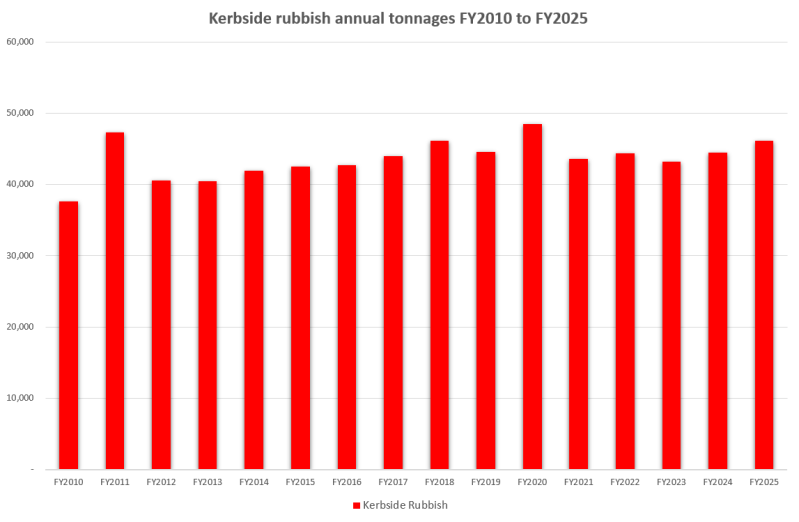
The Council’s contractor collects the organics, such as food and garden waste, from the green-lidded wheelie bins placed at the kerbside every week.
The standard-sized organics wheelie bin is 80 litres. It is possible to request a 240-litre organics bin instead, for an additional annual charge.
On average, every week 52% of organics bins were presented for collection in 2024/2025. The average weight of a bin is 11.69kg.
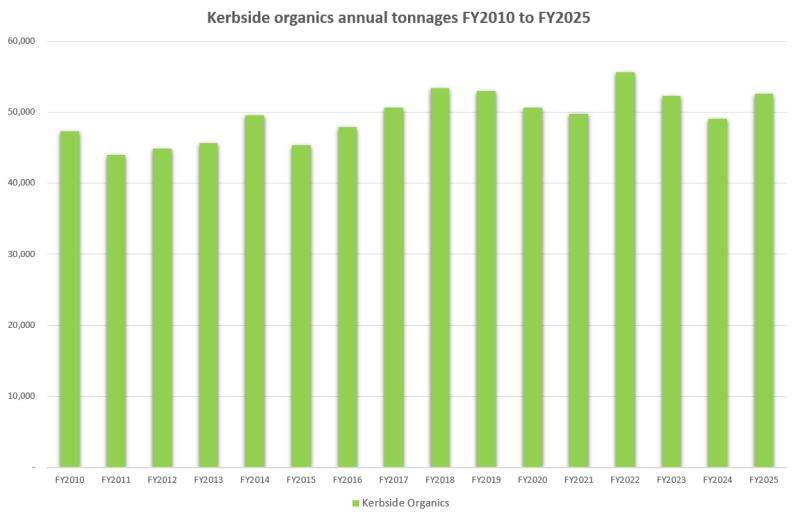
The Council’s contractor collects recycling, such as paper, cardboard, glass, metal and plastic containers, from the yellow-lidded wheelie bins placed at kerbside every second week.
The standard-sized recycling bin is 240 litres. It is possible to request a second 240-litre recycling bin for an additional annual charge.
On average, 70% of properties presented wheelie bins for collection in 2024/2025. The average weight of a recycling bin was 8.41kg.
Find out more information on truckloads recycled.
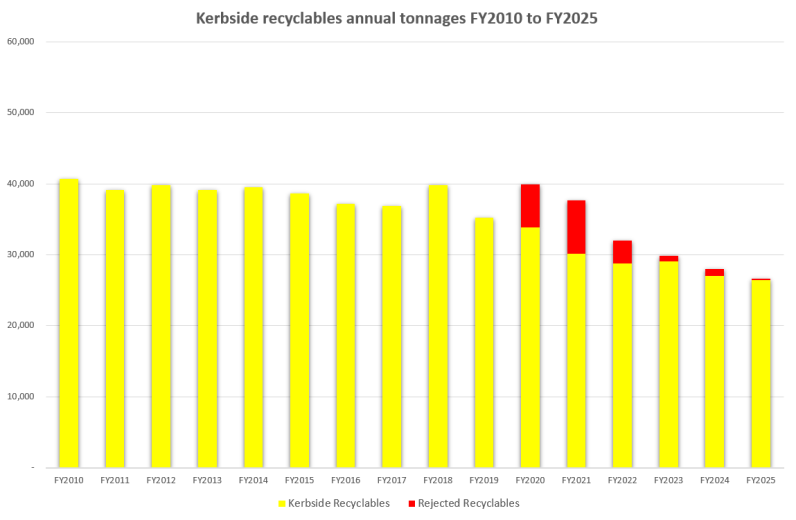
Waste audits are conducted every three years with data supplied to Ministry for the Environment (MfE). These audits show how our waste is diverted from landfill and identifies areas for improvement.
Waste audited in 2018 and 2022 includes rubbish from:
- Christchurch kerbside collection red bins
- Rubbish dropped off at Council transfer stations
Audited waste can be broken down as below:
| Type of waste disposed | 2018 | 2022 |
|---|---|---|
| Rubbish | 43.51% | 32.46% |
| Organics | 9.72% | 12.07% |
| Recyclable paper and cardboard | 15.58% | 11.91% |
| Timber | 8.18% | 10.71% |
| Recyclable plastics | 10.11% | 10.60% |
| Glass bottles, jars and window panels | 1.31% | 8.02% |
| Clothing and textiles | 5.57% | 6.32% |
| Electronic waste | 2.25% | 2.80% |
| Steel | 1.76% | 1.99% |
| Alloy | 1.11% | 1.31% |
| Household hazardous waste | 0.15% | 1.27% |
| Other (concrete, ceramics and rubble) | 0.76% | 0.54% |
| Sample size | 29,161kg | 21,472kg |
Related news
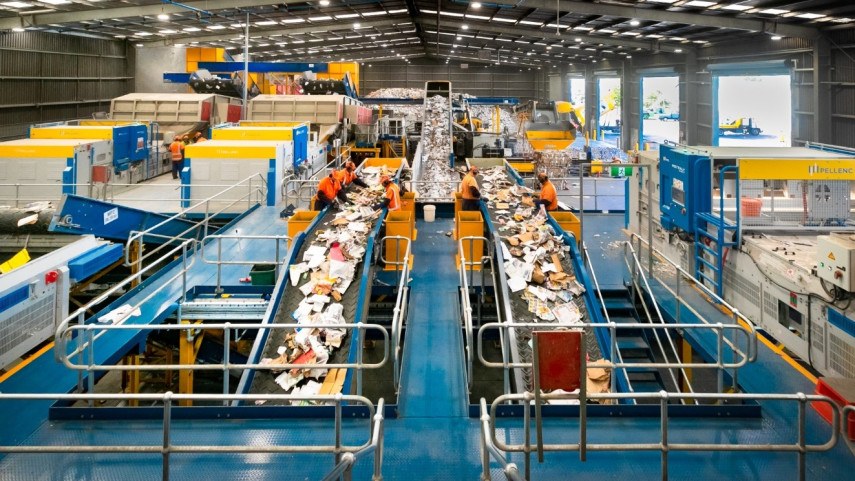
Gold stars for bin good
Christchurch residents are earning top marks for their best year yet at recycling.
18 Dec 2025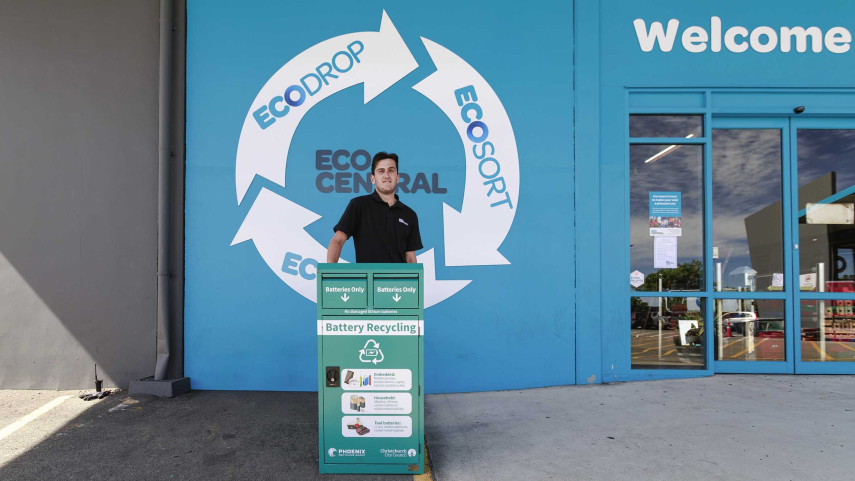
New fire-resistant units for recycling household batteries safely
Christchurch residents have new options for safely disposing of household batteries with upgraded, fire resistant collection units.
16 Dec 2025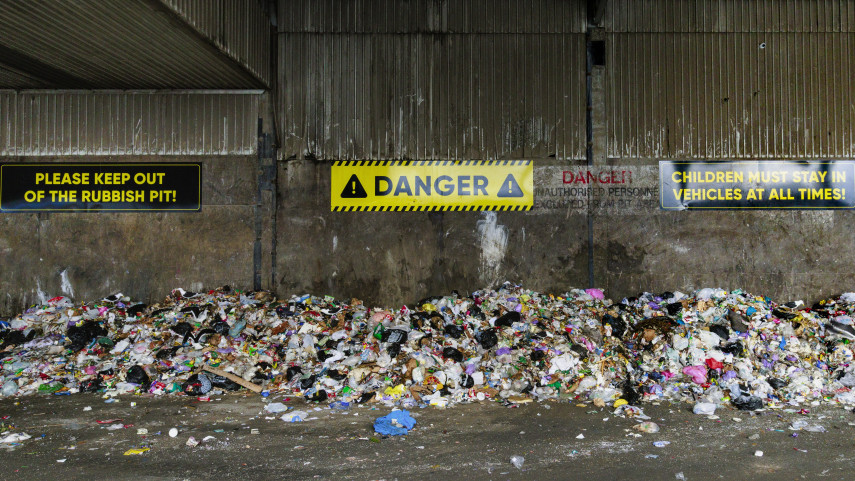
Prioritise safety at EcoDrop transfer stations
The Council’s Resource Recovery team and site operator EcoCentral are urging residents to prioritise safety at the EcoDrop transfer stations to protect themselves, their families and staff.
26 Aug 2025